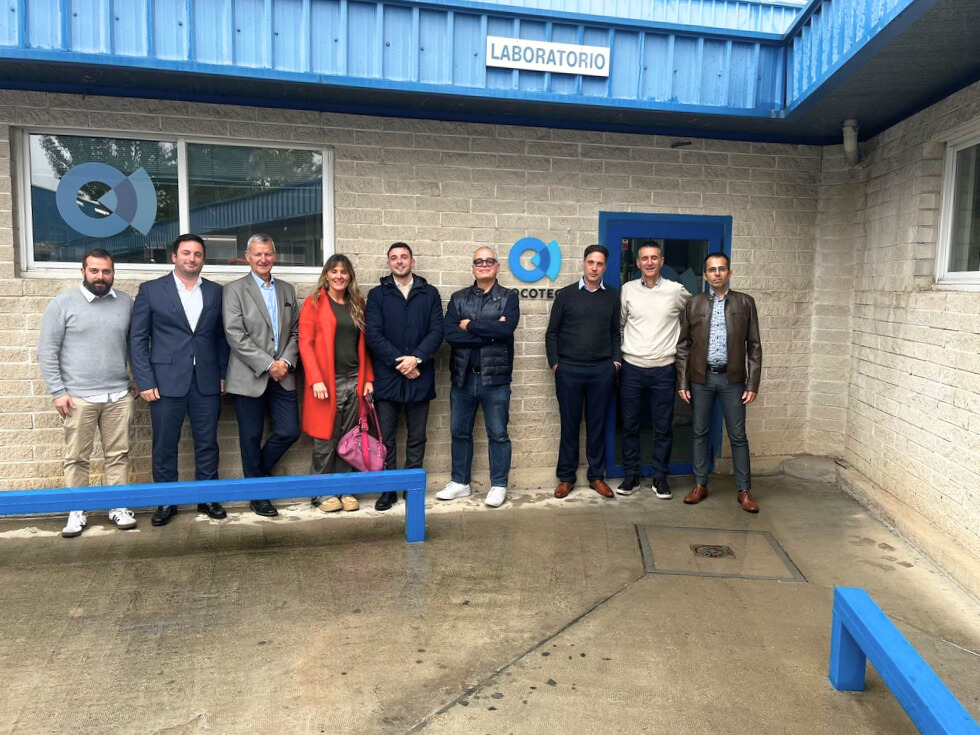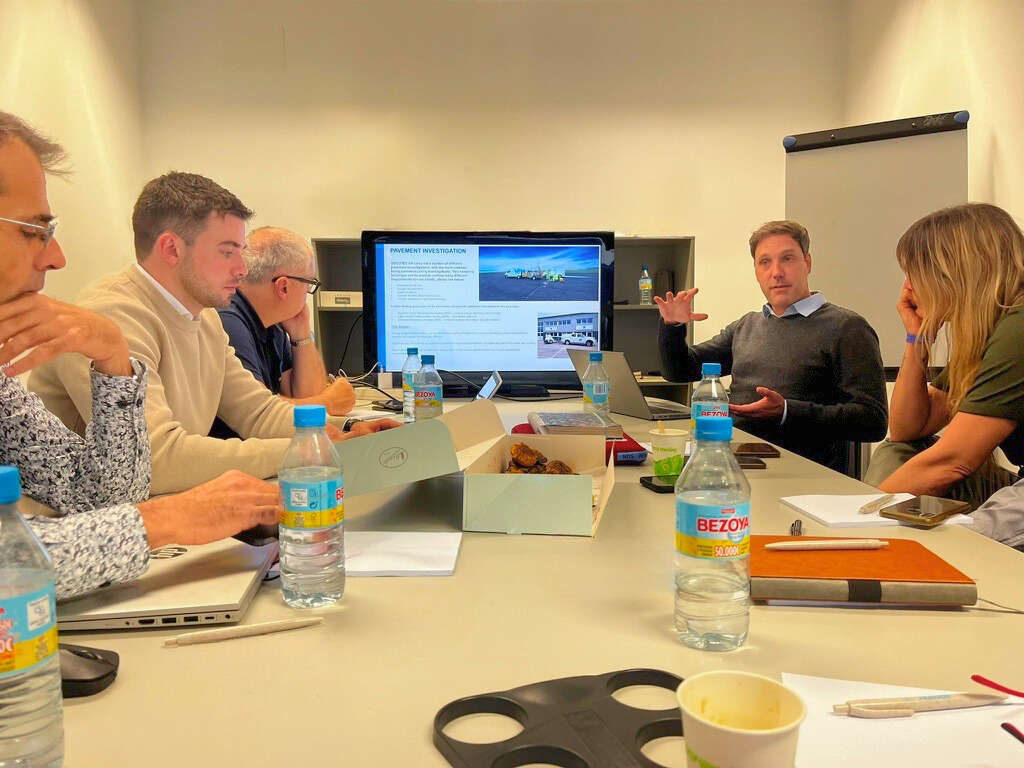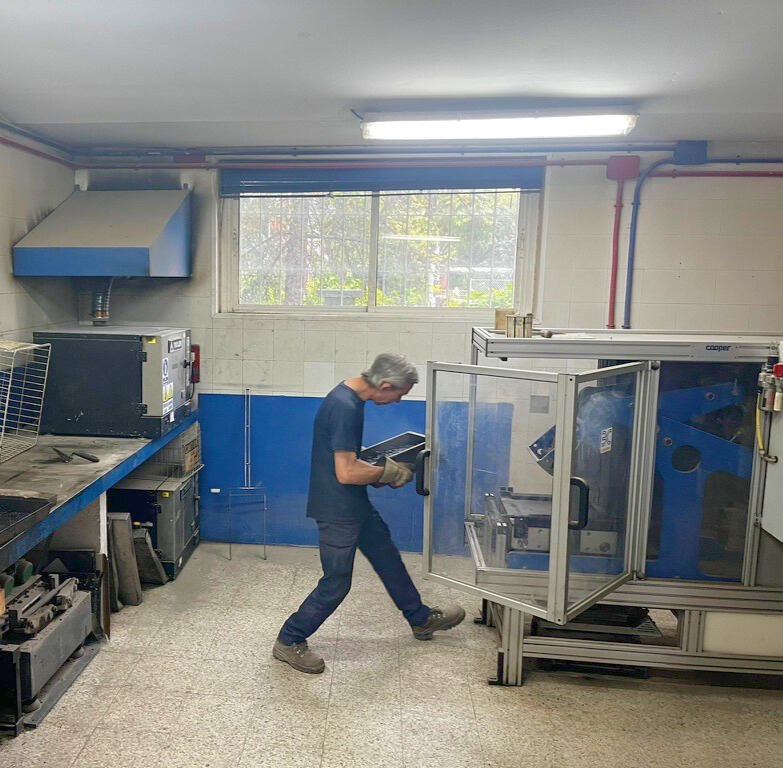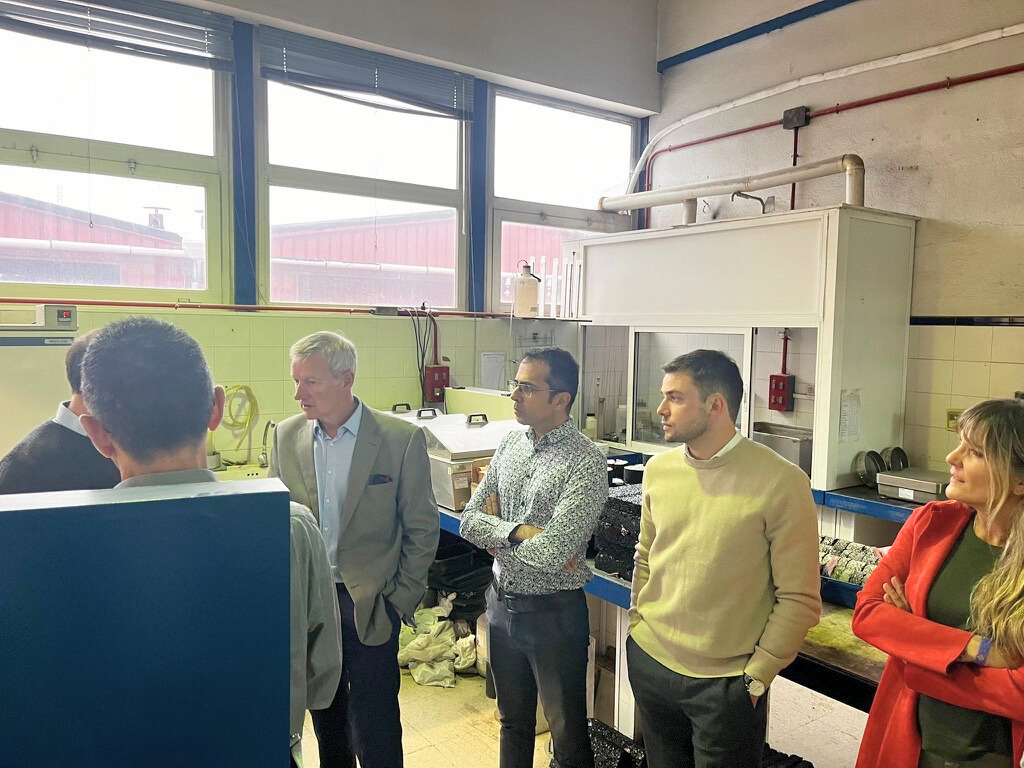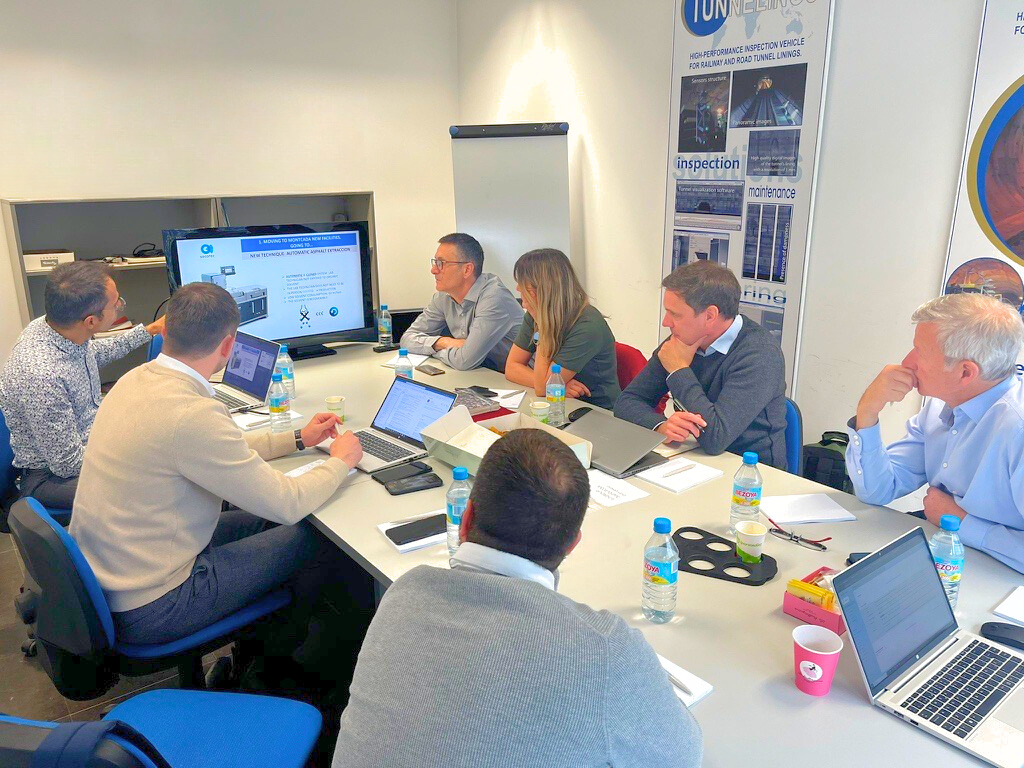SOCOTEC, a leading engineering and sustainability firm, has brought together its international teams in San Sebastián de los Reyes to drive innovation in sustainable pavements.
Experts from the United Kingdom, France, and Spain have shared their knowledge and the latest trends in materials, technologies, and testing methodologies to ensure more durable and environmentally friendly infrastructure.
This gathering has highlighted SOCOTEC's commitment to providing comprehensive solutions, from design and execution to quality control, in line with the principles of a circular economy.

Life Cycle Assessment (LCA)
Long-term performance tests
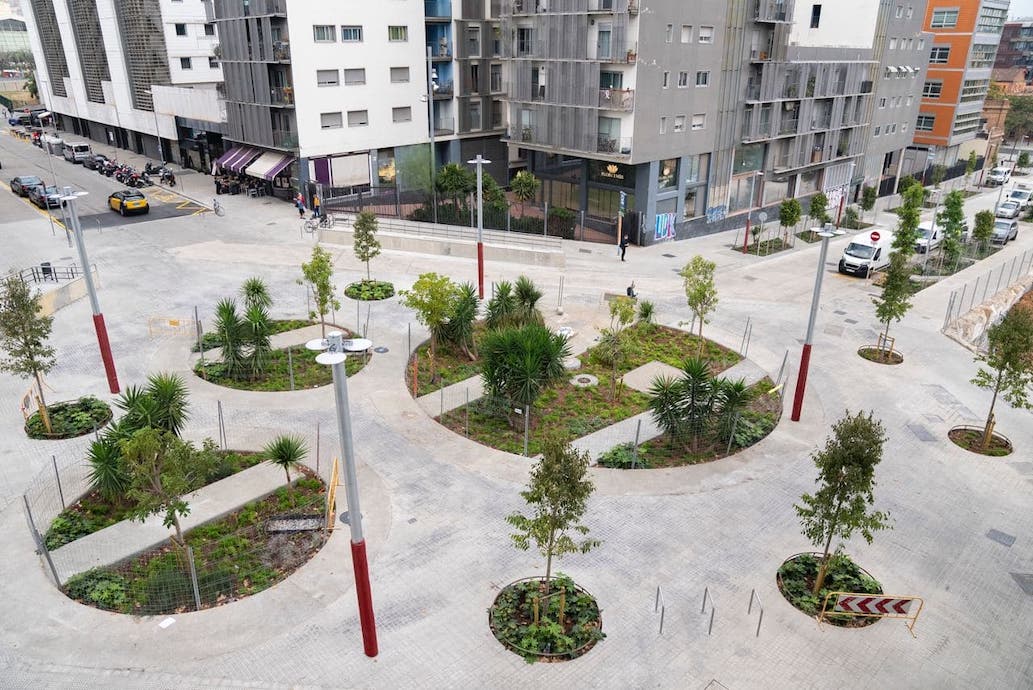
Thanks to life cycle analysis and the implementation of sustainable construction systems, SOCOTEC has significantly reduced the carbon footprint in projects such as the renovation of the Rambla Modolell in Viladecans and the integration of Sustainable Urban Drainage Systems (SUDS) in the urbanization of Calle Almogavers in Barcelona.
In the specialized Quality Control laboratories in San Sebastián de los Reyes, extensive testing, both normative and non-normative, has been carried out on new materials and construction systems for paving. These tests allow for the evaluation of the long-term performance of these new materials, with the objective of:
- Optimizing the use of traditional materials: Aiming to maintain the widely used bituminous mixtures in Spain, adapting them to new European standards and characterizing their properties through updated tests.
- Incorporating new technologies: Promoting the inclusion of new mixtures with recycled materials, such as bitumen modified with NFU tire powder, and exploring the possibilities of using high-modulus mixtures in intermediate layers to improve durability and resistance to adverse weather conditions.
- Improving the quality of base materials: Seeking to optimize the quality of aggregates and bitumens used in surface layers, thus ensuring better road performance.
Thanks to life cycle analysis and the implementation of sustainable construction systems, SOCOTEC has significantly reduced the carbon footprint in projects such as the renovation of the Rambla Modolell in Viladecans and the integration of Sustainable Urban Drainage Systems (SUDS) in the urbanization of Calle Almogavers in Barcelona.
In the specialized Quality Control laboratories in San Sebastián de los Reyes, extensive testing, both normative and non-normative, has been carried out on new materials and construction systems for paving. These tests allow for the evaluation of the long-term performance of these new materials, with the objective of:
- Optimizing the use of traditional materials: Aiming to maintain the widely used bituminous mixtures in Spain, adapting them to new European standards and characterizing their properties through updated tests.
- Incorporating new technologies: Promoting the inclusion of new mixtures with recycled materials, such as bitumen modified with NFU tire powder, and exploring the possibilities of using high-modulus mixtures in intermediate layers to improve durability and resistance to adverse weather conditions.
- Improving the quality of base materials: Seeking to optimize the quality of aggregates and bitumens used in surface layers, thus ensuring better road performance.
These studies will allow for the evaluation of the feasibility of using new formulations and materials, while ensuring compliance with the quality and safety requirements established in current standards.
International Synergies for a More Sustainable Future
Thanks to the collaboration between SOCOTEC Group teams and the exchange of knowledge and experiences, we have managed to identify best practices and develop tailored solutions for each market. This workshop consolidates SOCOTEC as a reference in sustainable pavement engineering, reaffirming our commitment to solutions that preserve the environment and improve quality of life.
Green Pavements
We provide more sustainable and environmentally friendly infrastructures


